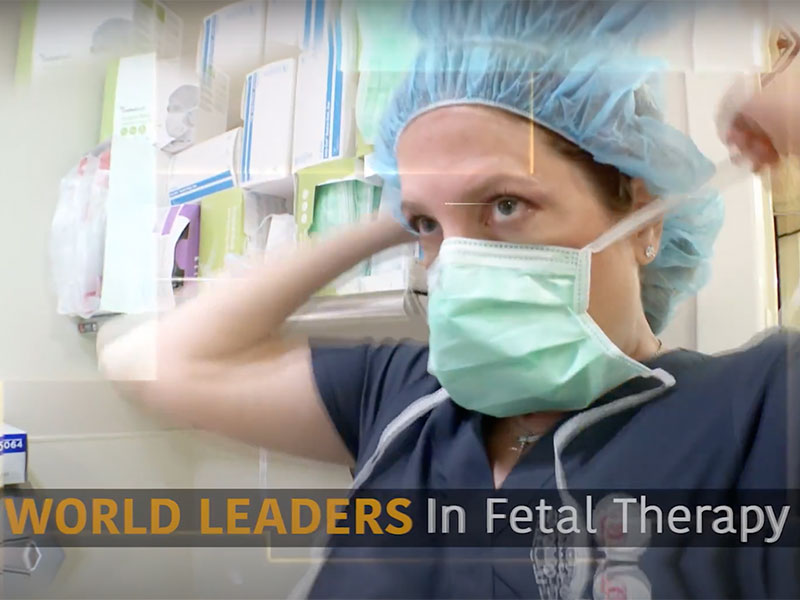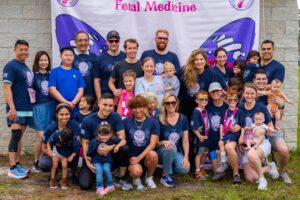Fetal surgery draws principally from the fields of surgery, obstetrics and gynecology, and pediatrics– especially the subspecialties of neonatology (care of newborns, especially high-risk ones), maternal-fetal medicine (care of high-risk pregnancies), and pediatric surgery.
It often involves training in obstetrics, pediatrics, and mastery of both invasive and non-invasive surgery, meaning it takes several years of residency, and at least one fellowship (usually more than one year), to be able to become proficient. It is possible in the U.S. to become trained in this approach whether one started in obstetrics, pediatrics, or surgery.
Because of the very high risk and high complexity of these cases, they are usually performed at Level I trauma centers in large cities at academic medical centers,- offering the full spectrum of maternal and newborn care, including a high level neonatal intensive care unit (level IV is the highest) and suitable operating theaters and equipment, and a high number of surgeons and physicians, nurse specialists, therapists, and a social work and counseling team. The cases can be referred from multiple levels of hospitals from many miles, sometimes across state and provincial lines. In continents other than North America and Europe, these centers are not as numerous, though the techniques are spreading.
Most problems do not require or are not treatable through fetal intervention. The exceptions are anatomical problems for which correction in utero is feasible and may be of significant benefit in the future development and survival of the fetus. Early correction (prior to birth) of these problems will likely increase the odds of a healthy and relatively normal baby.




